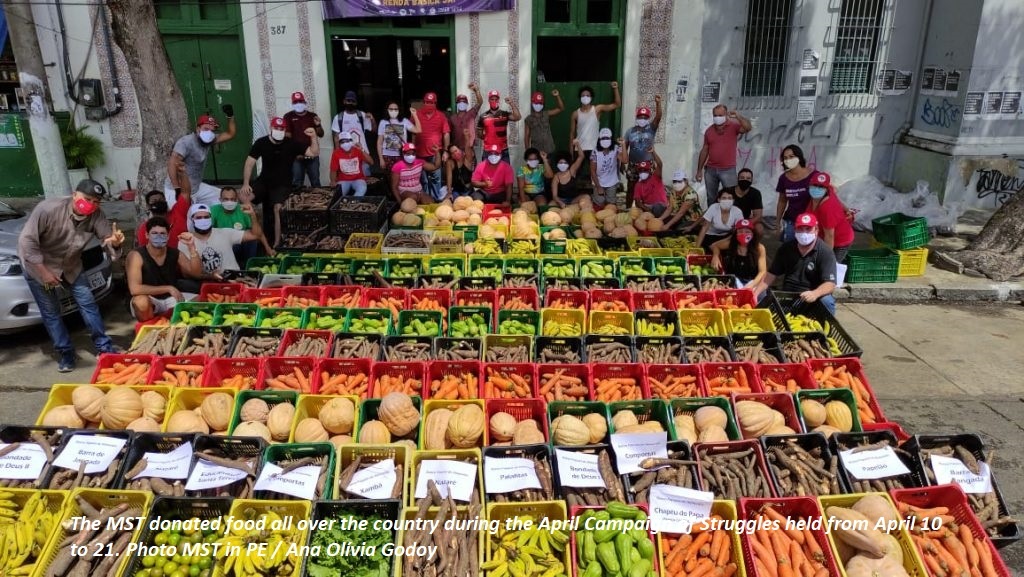BRAZIL: MST shares 100 tons of harvest among the workers affected by the food crisis

The MST is in solidarity and shares its harvest among the workers affected by the food crisis that the country is suffering, in the situation where more than half of the Brazilian population is not guaranteed that they will have food on the table.
It is estimated that there are almost 117 million suffering from food insecurity and 19 million facing severe hunger. This is what the data from the National Survey on Food Insecurity indicates in the context of the COVID-19 pandemic in Brazil – ascertained at the end of last year, by the Brazilian Network for Research in Sovereignty and Food and Nutrition Security (Penssan Network).
In this sense, and in the face of hunger – only during the first year of the pandemic, in 2020 – the MST has already donated more than 4 thousand tons of food and 700 thousand lunch boxes to families of workers and workers in a situation of social vulnerability.

In the month of April alone, the MST had already exceeded 100 tons of donated food and more than 16 thousand lunch boxes to poor communities across the country. The solidarity actions were carried out between April 10 and April 21, during the National Campaign of Struggles in defense of Agrarian Reform in April, in memory of the 25th anniversary of the Eldorado dos Carajás Massacre.
In addition, during the 11 days of the campaign, more than 50 thousand liters of water were distributed to the homeless population and in drought regions. There were also donations of almost 3 thousand liters of milk and delivery of more than 700 basic food baskets.
In donations from People’s Movement Health Agents, the families served received kits, totaling 1,500 protective masks for Covid-19. And it met in a national plenary session with other social movements that are members of the Brazil Popular Front and the Periphery Alive Against Coronavirus campaign to build collective solutions for the pandemic situation.
During the campaign, the MST, together with 30 Brazilian and international civil society groups, also signed the manifesto “We can’t wait: we need to breathe!” that blames the federal government for the shortage of intubation kits and requires the production of oxygen by Brazilian companies in view of the shortage of such items in the ICUs in Brazil.

In addition to the actions noted above, in some states Landless activists mobilized blood donation drives, volunteer work in the recovery of degraded areas and voluntary actions directed to hospitals.
